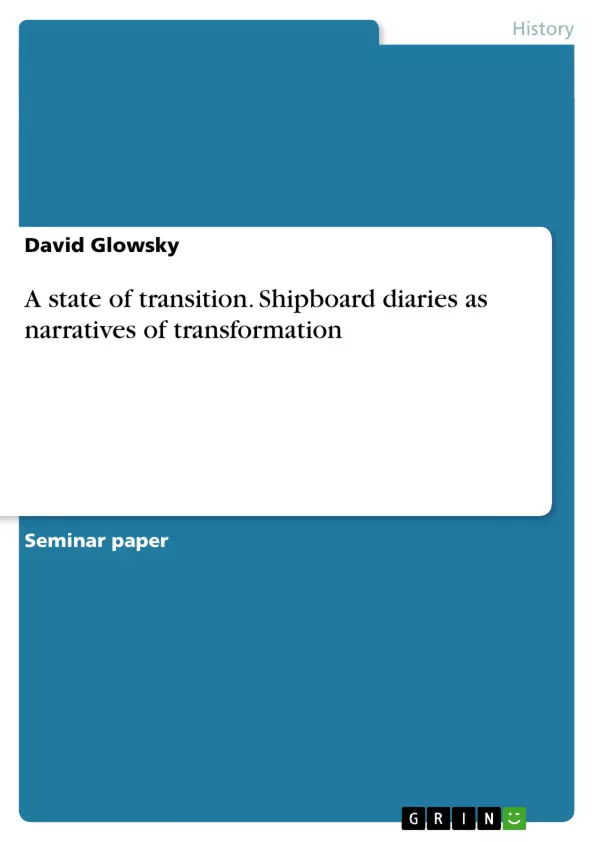New Zealand today is a settler society. Until far into the 20th century all immigrants had to travel to their new home by ship. Until steamers were used, a journey would take more than three months. Immigration was often irreversible, a step that determined the rest the rest of the migrants’ lives. The settlers left their home, went on a journey and sail to a place they had only heard of from an immigration agent, who would praise the destination as a promised land. The immigration entailed many steps and bore the weight of many expectations. This essay asks what is told through migrants’ diaries which they kept aboard their ships. To what extent did the migrants perceive the farewell, the journey and the arrival as a transformation?
Inhaltsverzeichnis (Table of Contents)
- Introduction
- The Sources
- Leaving behind
- With strangers
Zielsetzung und Themenschwerpunkte (Objectives and Key Themes)
This essay analyzes shipboard diaries of 19th-century migrants traveling to New Zealand to understand how these journeys contributed to their transformation. By studying these personal narratives, the author aims to uncover how migrants perceived the farewell, the journey, and the arrival as significant life-changing experiences.
- The transformative nature of the migrant experience
- The impact of leaving behind family and home
- The challenges and opportunities of life on board ship
- The formation of new communities and relationships
- The perception of New Zealand as a promised land
Zusammenfassung der Kapitel (Chapter Summaries)
- Introduction: This chapter provides an overview of the context surrounding 19th-century migration to New Zealand, emphasizing the significance of ship travel and the irreversible nature of these journeys. The author introduces the concept of transformation and the importance of analyzing shipboard diaries as a source of understanding migrant perspectives.
- The Sources: This chapter outlines the four unpublished shipboard diaries used in the essay, highlighting their diverse viewpoints and the circumstances under which they were written. The diaries cover various aspects of the migrant experience, including the ages, genders, and origins of the writers, as well as the size and conditions of their respective ships.
- Leaving behind: This chapter explores the emotional and psychological impact of leaving behind loved ones and familiar surroundings. The author analyzes how migrants remember the farewell in two stages: the immediate leave-taking and the later memories that surface during the voyage. The chapter also discusses the significance of anniversaries and how they serve as reminders of the separation.
- With strangers: This chapter examines the formation of new communities and relationships on board ship. The author discusses the challenges of living in close proximity with strangers for extended periods, particularly in the context of cramped conditions and limited social options. The chapter also highlights the potential for conflict and tensions that can arise in such environments.
Schlüsselwörter (Keywords)
This essay focuses on the themes of migration, transformation, shipboard diaries, 19th-century New Zealand, farewell, community, and the challenges and opportunities of a new life in a foreign land. It delves into the personal experiences of migrants and their reflections on the journey and its impact on their lives.
- Quote paper
- David Glowsky (Author), 2002, A state of transition. Shipboard diaries as narratives of transformation, Munich, GRIN Verlag, https://www.hausarbeiten.de/document/20224


